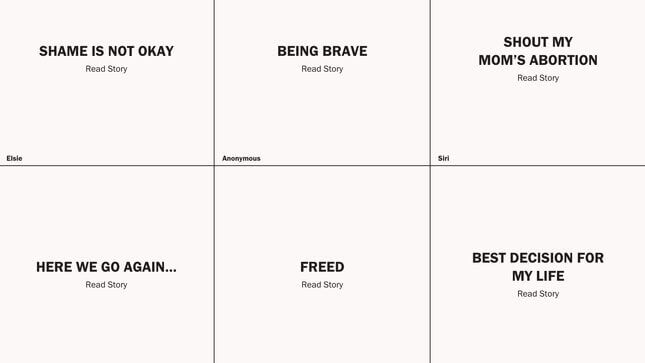

On Tuesday, as Republican legislators in Alabama voted to pass what amounts to a total ban on abortion in the state, the actor Busy Phillips tweeted out a call for people who have had abortions to share their stories, using the hashtag #youknowme:
Hundreds of people, largely women who have had abortions, responded, sharing everything from the traumatic (“Back alley. Catheter and clothes hanger. I was 19, it was 1966. I didn’t die. But I could have.”) to the mundane (“I was 16 and the condom broke. There was never any question about what I was going to do and I have never regretted it”).
-

-

-

-

-

-

-

-

-

-

-

-

-

-

-

-

-

-

-

-

-

-

-

-

-

-

-

-

-

-

-

-

-

-

-

-

-

-

-

-








































